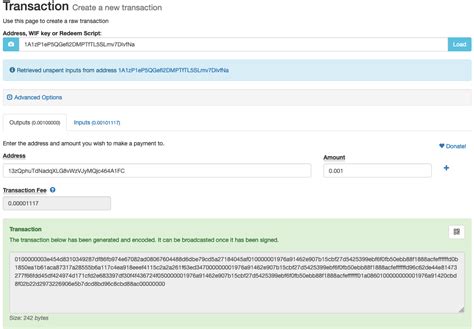Invalidation of signed transactions with a specified period
In the Bitcoin protocol, transactions are signed using cryptographic methods, which guarantees their authenticity and integrity. One such method is the use of timestamps in the transaction digest. A valid transaction will be considered invalid if it is not included in a block up to a certain height.
Problem: Timestamp-based invalidation
The timestamp-based method is based on the assumption that transactions with timestamps older than 2^32 blocks (about 7 days) are considered invalid due to the structure of the Bitcoin blockchain. In this article, we will investigate whether it is possible to create a valid signed transaction that becomes invalid if it is not included in a block before a certain height.
Theoretical Possibilities
One theoretical possibility is that by manipulating timestamps and using specific opcodes (opcodes are instructions used in the protocol), a scenario could be created in which a signed transaction would be considered invalid. However, this approach requires careful consideration of various factors, including:
- Timestamp Manipulation: Changing or manipulating the transaction timestamp to make it appear older than intended could lead to unexpected behavior.
- Opcode Usage: Selectively using specific opcodes that can verify the validity of an operation could result in an invalid signed transaction.
Current Status of Bitcoin Timestamp-Based Invalidation
Currently, Bitcoin timestamp invalidation is implemented using a fixed height (2^32) and a “block time” mechanism. When a new block is mined, its timestamp is compared to the timestamp of the previous block plus one second. If the difference exceeds the block time, the transaction is considered invalid.
Limitations and Considerations
While it is theoretically possible to create an invalid signed transaction using specific transaction codes and timestamp manipulation, there are a few limitations and considerations to keep in mind:
- Inconsistency: The timestamp-based mechanism ensures that all transactions are valid or invalid by the same criteria. Changing this consistency can cause unexpected behavior.
- Scaling: Manipulating timestamps and using opcodes can cause scaling issues that can impact overall network performance.
- Security: Any attempt to create an invalid transaction can compromise the security of the entire Bitcoin network.
Conclusion

While it is theoretically possible, attempting to create a valid signed transaction that becomes invalid if it is not included in a block up to a certain height is unlikely. The timestamp mechanism guarantees the consistency and integrity of all transactions, making this approach impractical and potentially risky. As with any Bitcoin activity, it is crucial to stay up to date with the latest protocol developments and best practices to ensure safe and efficient use of the cryptocurrency.
